Friday, 02 May 2014 10:06
| In Pictures: The plight of the Rohingya |
|
Many Muslim Rohingya in Myanmar are still displaced after ethnic clashes drove them from their homes.
Andrew Stanbridge Last updated: 20 Jan 2014 21:01
|
   |
Sittwe, Myanmar - A year and a half ago, an outbreak of violence between Buddhists and Rohingya Muslims here in Sittwe, Myanmar, started a struggle that drove nearly 150,000 Rohingya from their homes and into hastily put-together camps for Internally Displaced Persons (IDPs). Violent attacks continue to occur across Rakhine state, forcing more and more Rohingya into areas of refuge. Conditions inside the dusty camps are sparse. Those lucky enough to have been allocated official aid buildings live with 10 families in each long house. Those that are still waiting to be assigned space from the government are left to create makeshift shelters out of whatever they can salvage, whether it be empty food bags or dried rice stalks. Temperatures can vary drastically, from searing daytime heat to cold nights and monsoon rains. Access to clean water and food is limited and, although toilets facilities were some of the first things to be built, raw sewage still runs through open waterways. There are frequent disagreements between the police, largely members of the Burmese ethnic majority, and the Rohingya IDPs. These confrontations sometimes turn violent and are often only quelled when the army intervenes. |
|
View As Slideshow >>
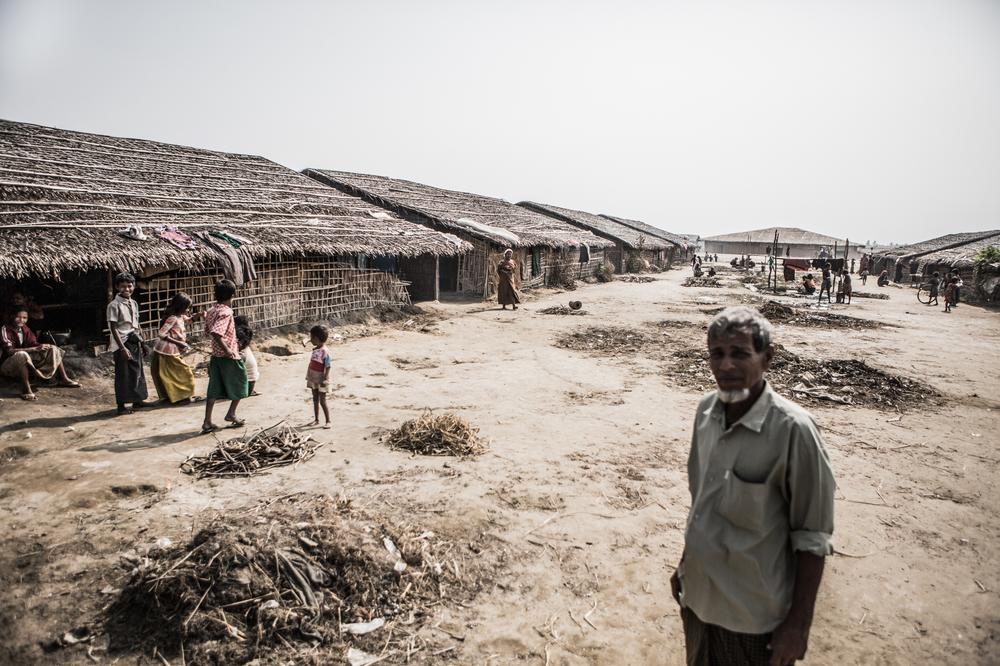 /Andrew Stanbridge/Al Jazeera
One of the first and largest IDP camps outside of Sittwe, Myanmar, where the first wave of Rohingyans fled when Buddhist mobs began to attack their villages, burning homes to the ground. 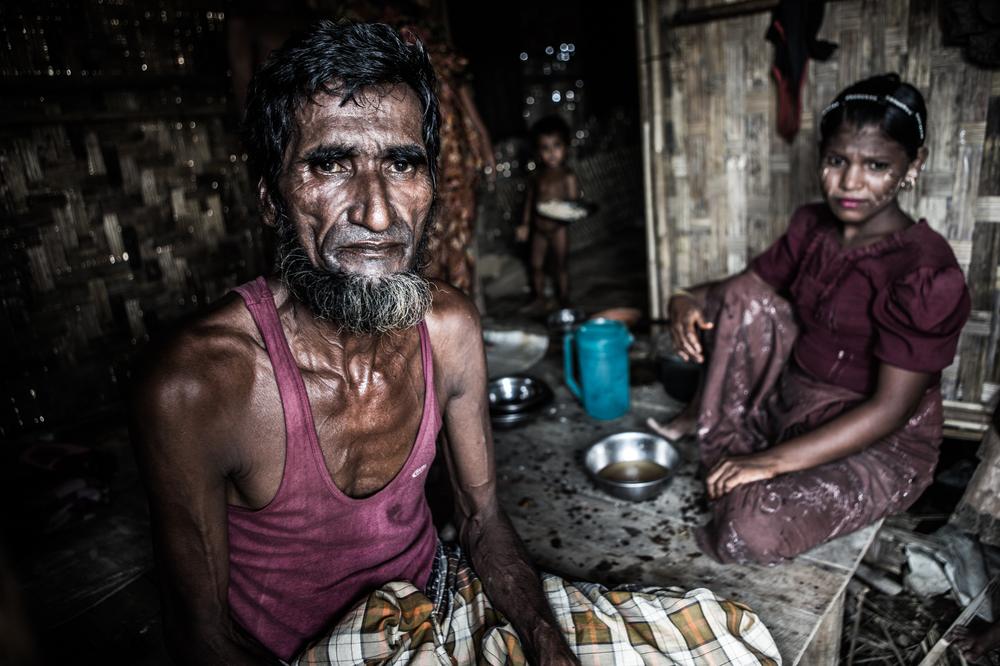 /Andrew Stanbridge/Al Jazeera
A displaced Rohingya family eats a meal inside of their shelter. Rations given by aid groups barely cover enough for one meal a day. 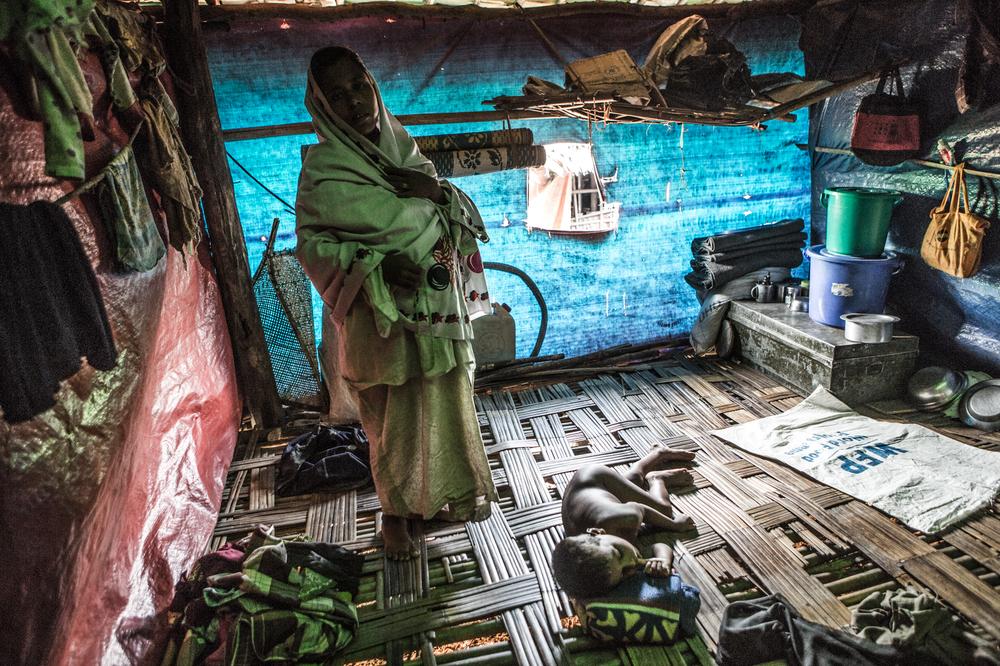 /Andrew Stanbridge/Al Jazeera
A Rohingyan child naps inside a shelter provided by aid groups and the Myanmar government. 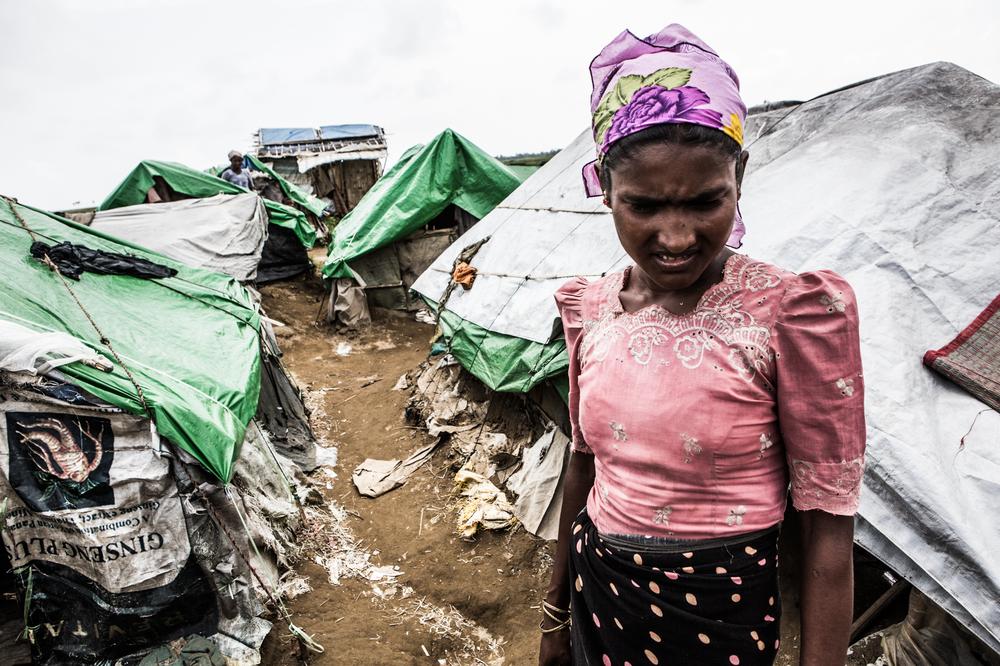 /Andrew Stanbridge/Al Jazeera
Many of the Rohingya that have fled their villages have not been given shelter by the government, and have begun to create their own encampments using whatever materials are available. 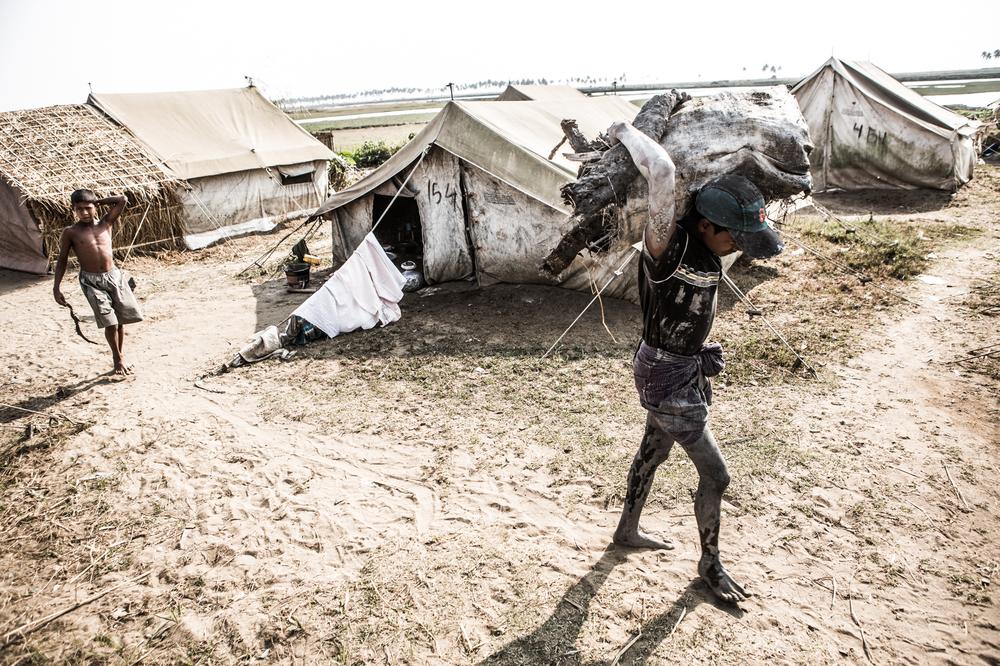 /Andrew Stanbridge/Al Jazeera
Rohingyan boys collect firewood in one of the IDP camps outside of Sittwe, Myanmar. Temperatures can vary drastically from searing daytime heat to cold nights and monsoon rains.
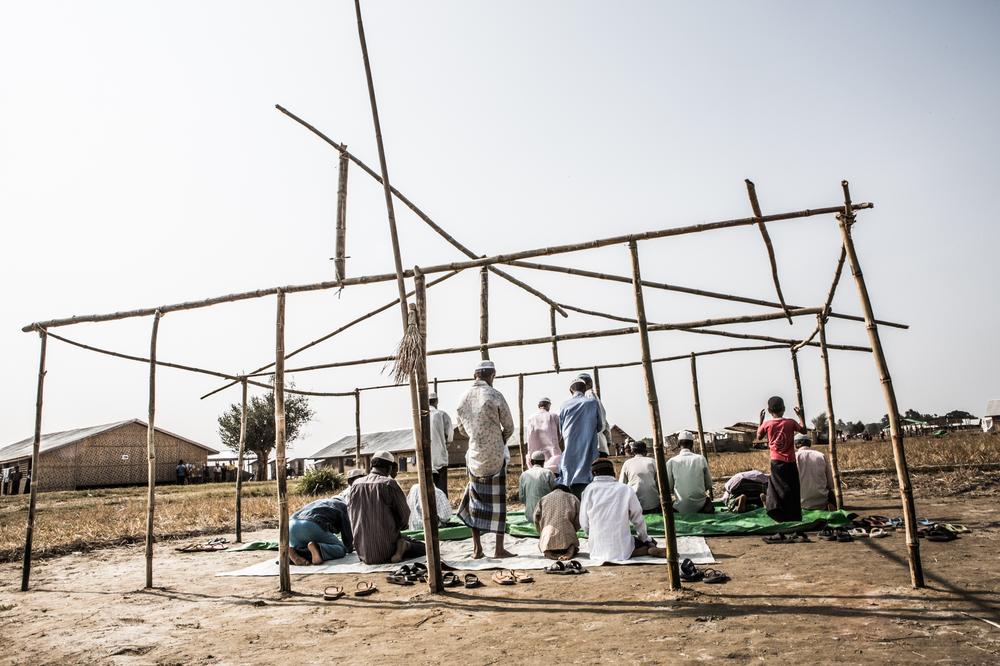 /Andrew Stanbridge/Al Jazeera
Rohingya men pray in an under-construction mosque. 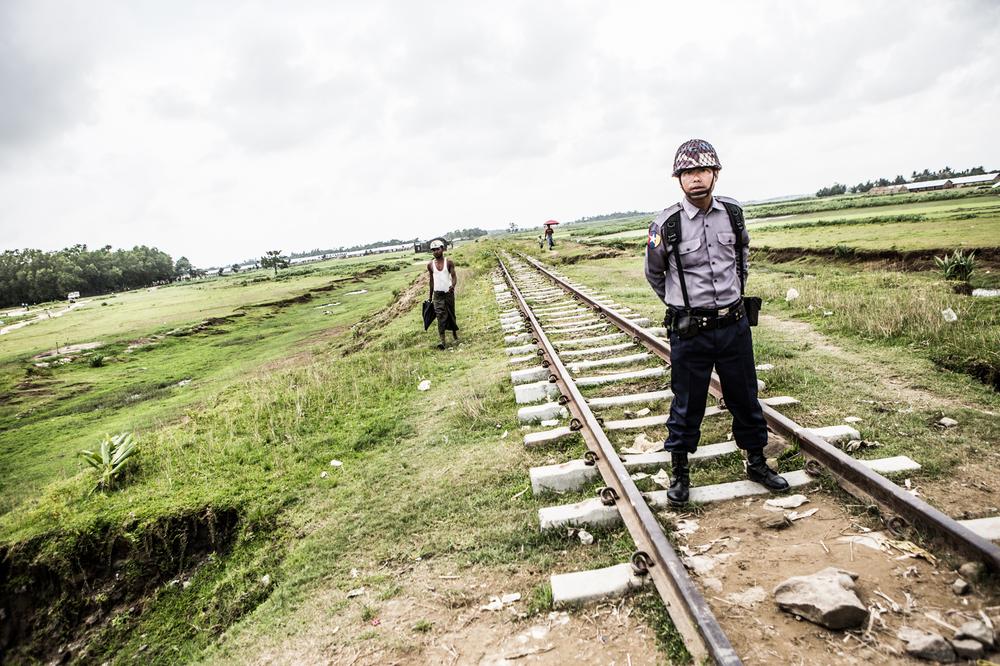 /Andrew Stanbridge/Al Jazeera
A policeman stands guard on a railway line that is also one of the entrances to an IDP camp. Rohingyans in the camps are not permitted to leave the encampments.
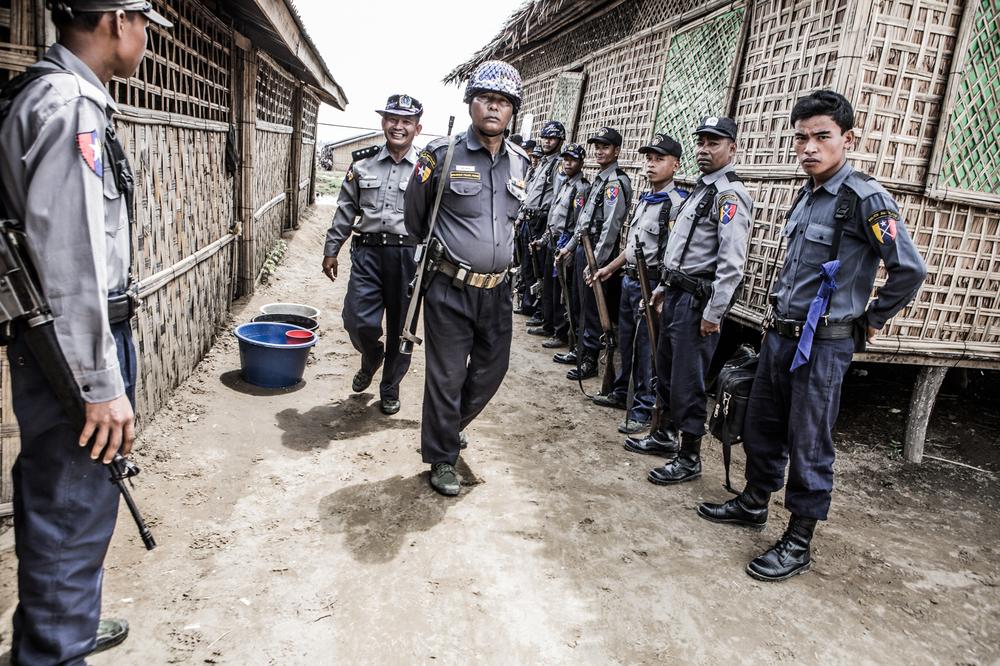 /Andrew Stanbridge/Al Jazeera
Myanmar police on patrol in one of the Rohingyan camps. Animosity towards the police is very high. 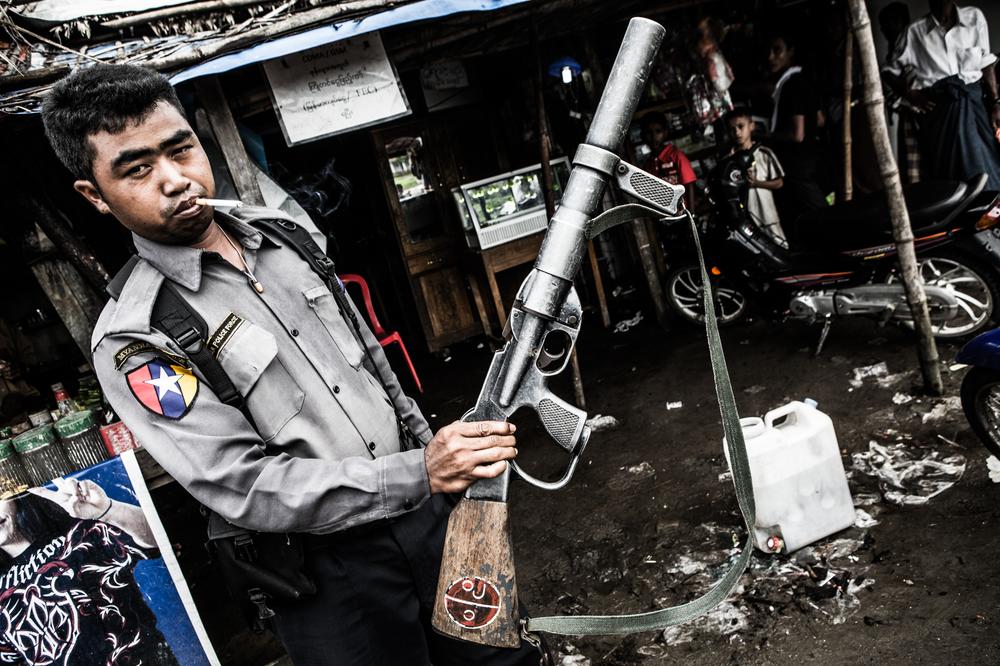 /Andrew Stanbridge/Al Jazeera
A Myanma policeman at the entrance to the camps shows off his grenade launcher. Many of their weapons are from the World War II era. 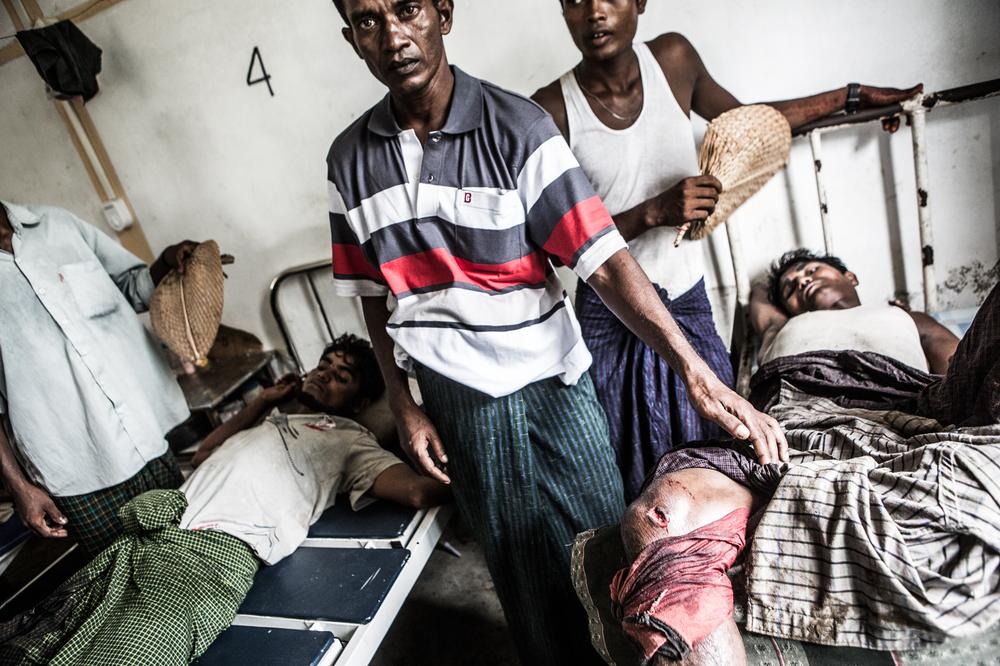 /Andrew Stanbridge/Al Jazeera
During one confrontation between displaced Rohingya and police, several IDPs were severely injured when police opened fire. 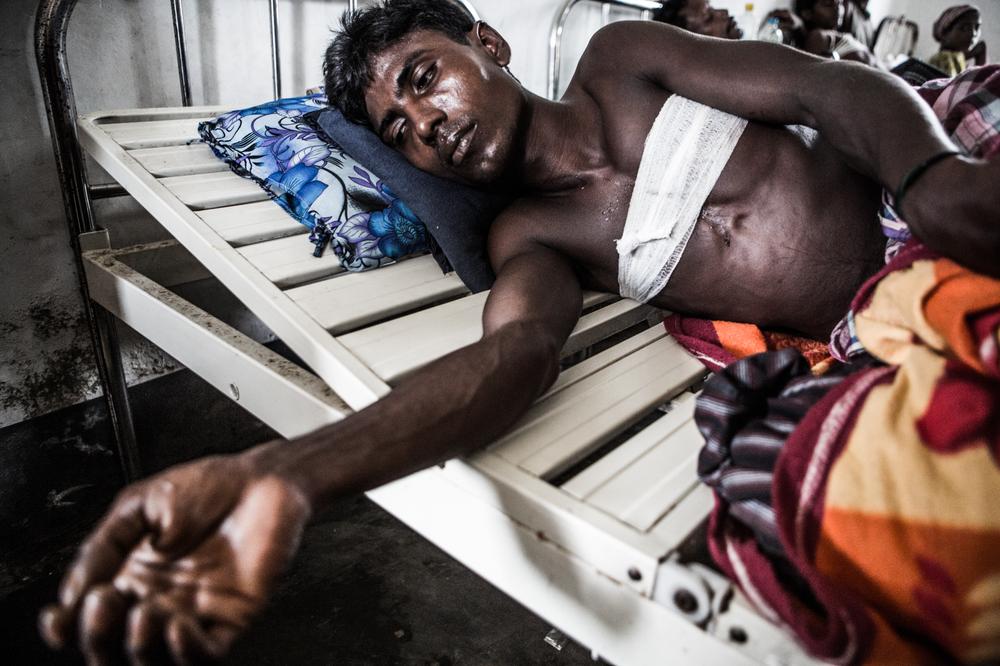 /Andrew Stanbridge/Al Jazeera
A gunshot victim waits to be evacuated by the Red Cross. Medical resources inside the camps are little to none and the Red Cross brings some of the wounded and sick into its small facilities in the town of Sittwe.  /Andrew Stanbridge/Al Jazeera
A Rohingyan man holds bullets and casings left behind after police shot at a mob of Rohingyan IDP's who were demanding the dead body of one of their villagers be released from police custody.
Follow photographer Andrew Stanbridge on Twitter: @stanbridgefoto http://www.aljazeera.com/indepth/inpictures/2014/01/pictures-rohingya-2014120155550685850.html |
Tuesday, 29 April 2014 21:05
 |
|
Become an active member of the ProductiveMuslim community and enrich it with your thoughts. Leave a comment on this article and with it, your presence. We look forward to reading your comments.
Alhamdulillah, we’ve been sharing many tips and resources on how you can work better and be a truly productive Muslim. Now it’s your turn to help our readers! Every month, we will host a Productive Muslim’s reader discussion thread where you can share and learn from each other tips that help you become more productive. Thank you for the many interesting opinions and tips on last month’s discussion on your favourite e-mail hacks! The theme for this month is productivity when you’re ill.
May Allah grant you all good health and long life for productive use. However, we do tend to fall ill from time to time. Whether it’s a brief knock out like the common cold, or something long-lasting and more of a trial, these sick days can easily slip by without much attained. Rest and recovery go hand in hand, but being the productivity ninjas that you are, do you still find a way to make this time beneficial for yourself and for others? We’ve talked about being a productive patient before. Now we want to ask YOU! Do share your thoughts below! |







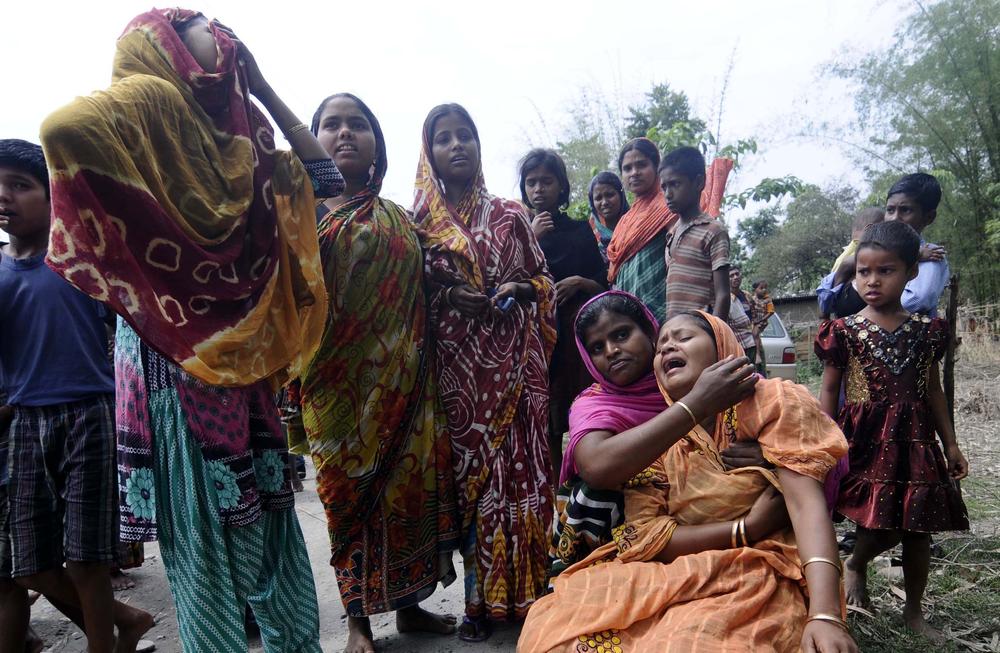

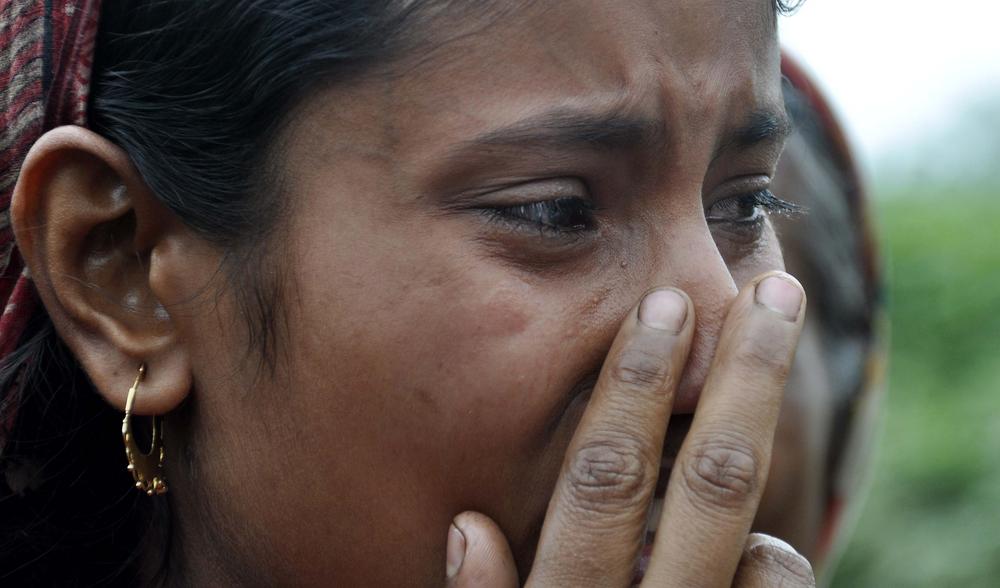
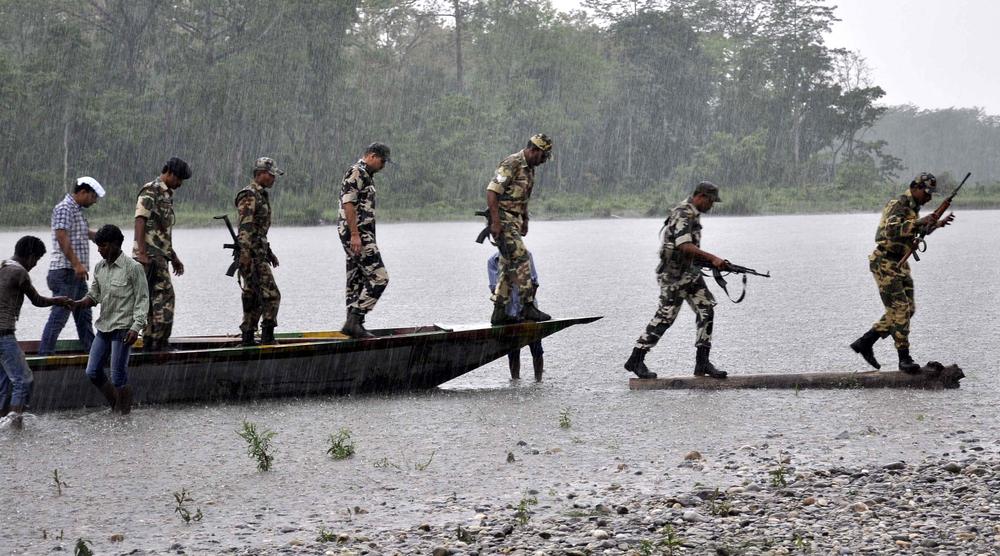
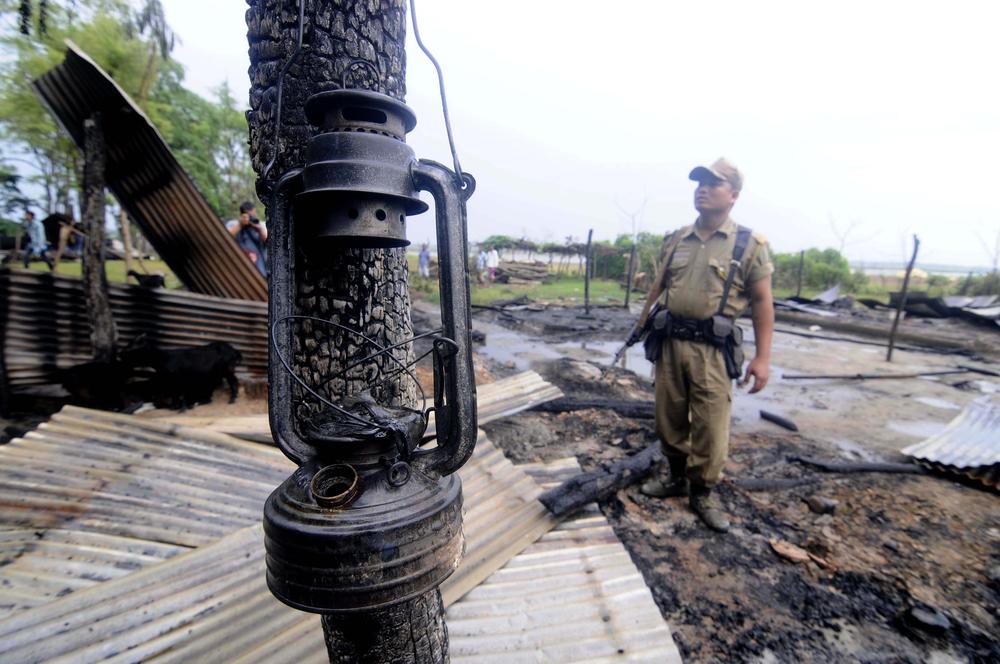
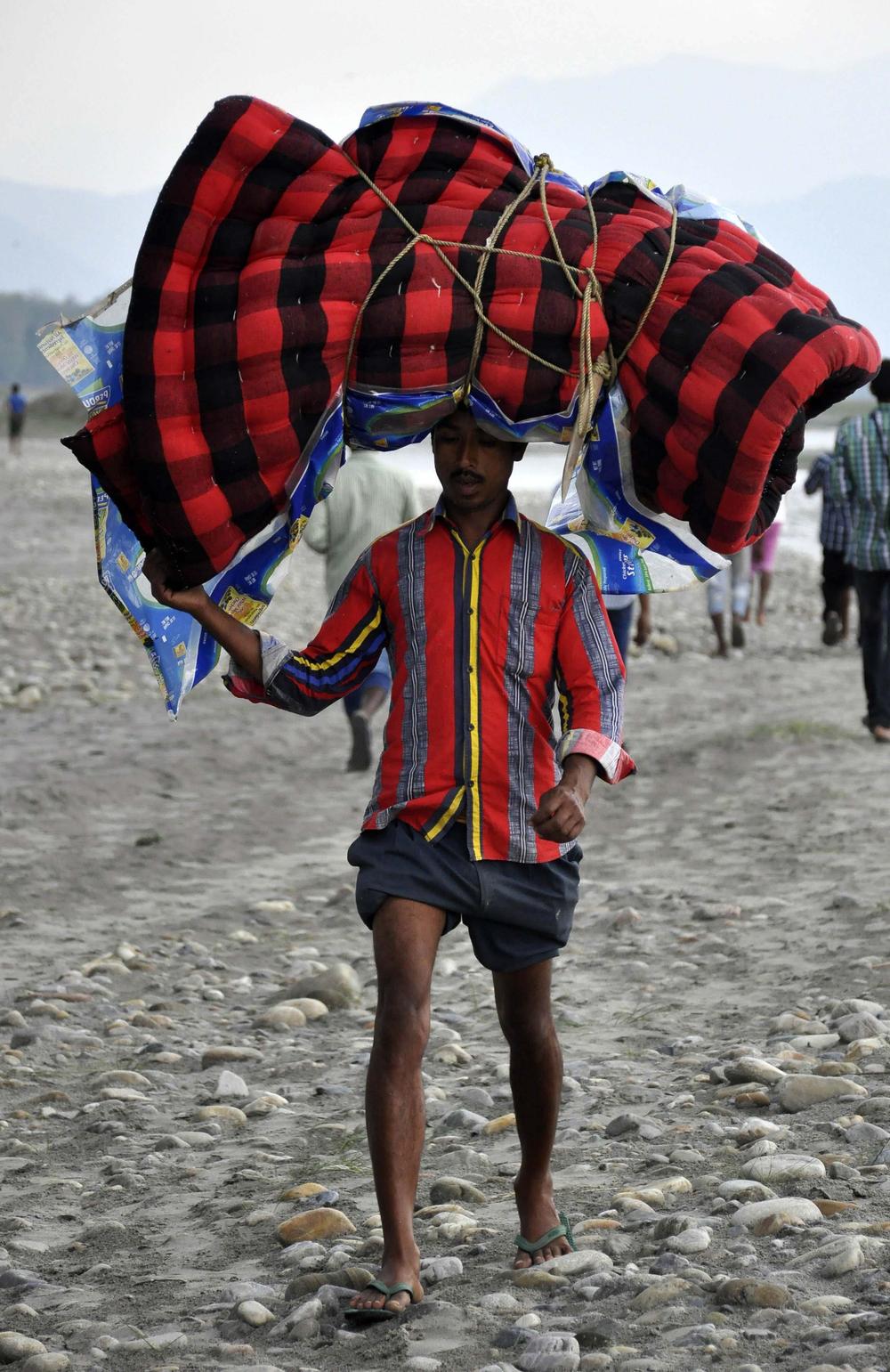




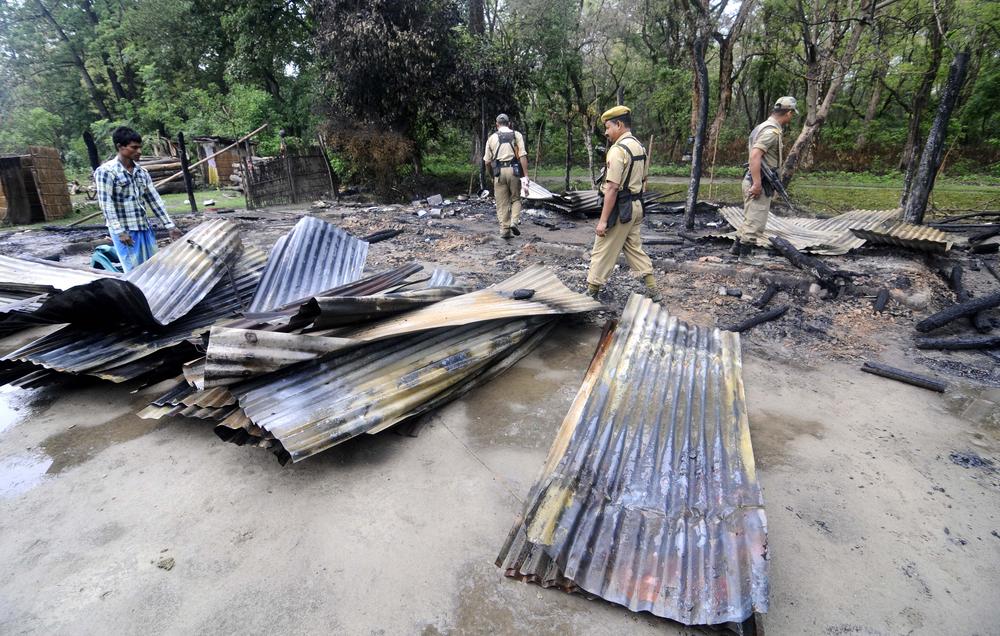











![[Reader Discussion] Being Productive When You're Not Feeling Well | Productive Muslim [Reader Discussion] [Reader Discussion] Being Productive When You're Not Feeling Well | Productive Muslim](https://ci4.googleusercontent.com/proxy/Kf13SGbRNaJAq30jZpJ-X0aNgEF46jrlMsLH2Nm-XJL9w2FHgAbd-nlLiBjUCBsVX1H0enuRGa2-D9x9JgmV53y6A12w6Uz7-Bbt9MsOkufm0CRCQnXJNRbIcGMH6gsi25sQPbtxOZR6SKPNFkMP2q6BUrpXm1J-bPjG4w=s0-d-e1-ft#http://cdn.productivemuslim.com/wp-content/uploads/2014/03/Productive-Muslim-Reader-Discussion-600.png)



